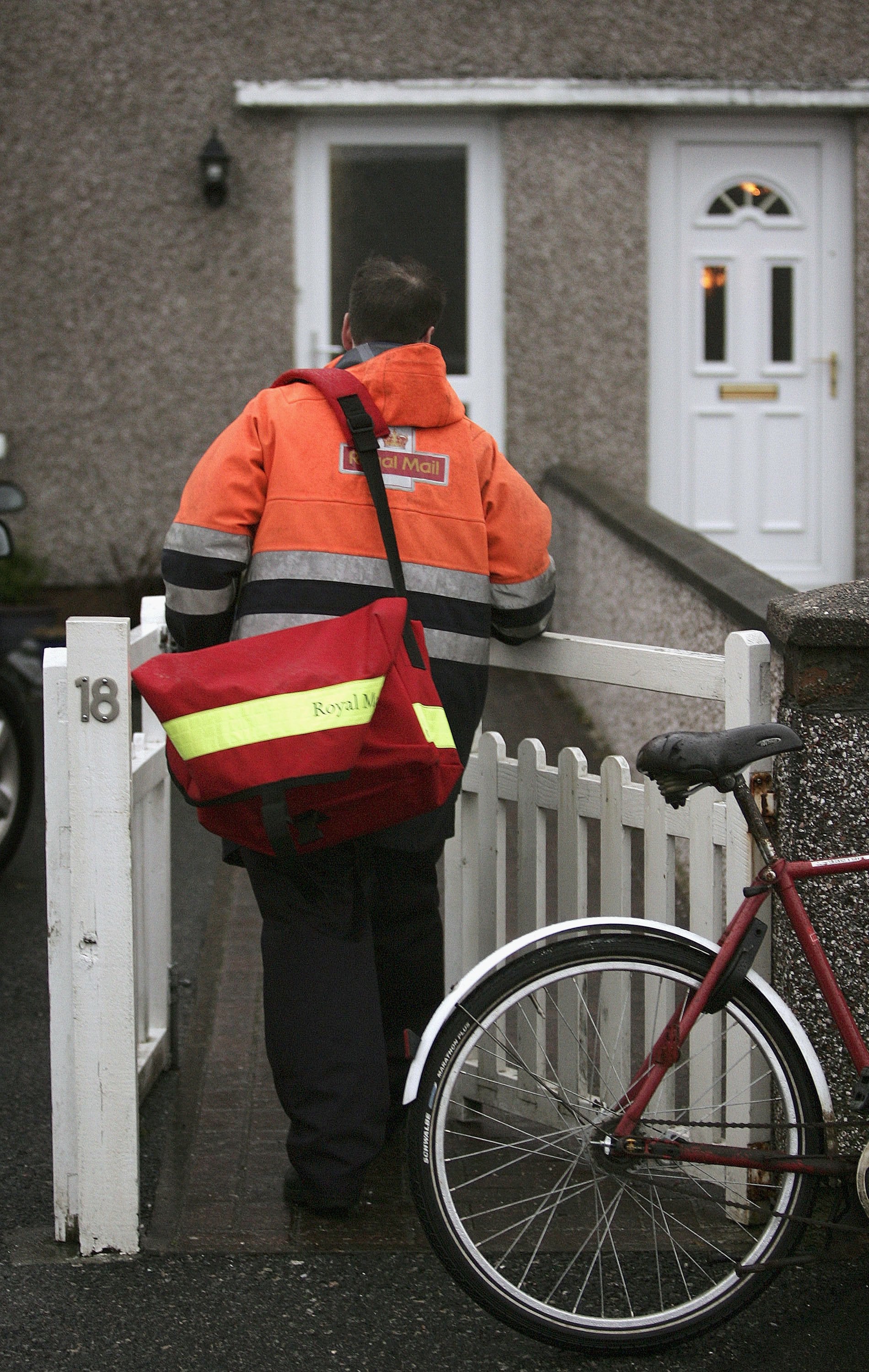Fall in dog attacks against postal workers during pandemic
More than 30 dog attacks on Royal Mail staff each year despite fall in incidents

Your support helps us to tell the story
From reproductive rights to climate change to Big Tech, The Independent is on the ground when the story is developing. Whether it's investigating the financials of Elon Musk's pro-Trump PAC or producing our latest documentary, 'The A Word', which shines a light on the American women fighting for reproductive rights, we know how important it is to parse out the facts from the messaging.
At such a critical moment in US history, we need reporters on the ground. Your donation allows us to keep sending journalists to speak to both sides of the story.
The Independent is trusted by Americans across the entire political spectrum. And unlike many other quality news outlets, we choose not to lock Americans out of our reporting and analysis with paywalls. We believe quality journalism should be available to everyone, paid for by those who can afford it.
Your support makes all the difference.The number of dog attacks on postmen and women has fallen by almost a third in the past year, mainly due to changes to deliveries because of the pandemic, Royal Mail has reported.
There were 1,690 dog incidents, compared with 2,445 in 2019/20, but the company said the number of attacks is still too high, with 33 every week, some of which lead to permanent and disabling injuries.
During the Covid-19 crisis Royal Mail launched contact-free delivery, enabling workers to take letters and parcels to the doorstep while adhering to social distancing measures.
Royal Mail launched its annual Dog Awareness Week with a plea to owners to ensure they understand the often “devastating” impact of dog attacks on postmen and women.
Most dog attacks take place at the front door, with others in gardens, driveways or through letterboxes.
They resulted in more than 900 days of absence in 2020/21, with the most incidents reported in areas including parts of Brighton, Sheffield, Belfast, Portsmouth, Ipswich, Tunbridge Wells and Gloucester.
Julie Mundy, a postwoman for 19 years, who is based in Nantwich, Cheshire, was off work for three months after an attack, and was left feeling terrified if she heard a dog barking.
She said: “I was delivering a parcel to a customer. I had never seen a dog there because the owner had always kept it out of the way. On this occasion, somebody else came to the door for the parcel and brought the dog with them.
“Like many others, they tried to hold on to the dog while at the same time trying to accept their mail.
“This time the dog broke free and dived straight at me. I started back because I just wasn’t expecting it and I fell on the kerb in the garden and broke my hip.
“My arm was bleeding where the dog had bitten me because I had been trying to cover my face.”
The dog’s owner received an 18-month suspended jail sentence.
Dr Shaun Davis, of Royal Mail, said: “We are pleased to see such a significant decrease in dog attacks on our staff this past year. However, 33 dog attacks per week on postal workers is still alarmingly high.
“We are aware that a change in our delivery procedures was the main factor for the reduction in attacks this year. We now need to build on this change, and further reduce the number of attacks on our people.
“So we are asking our customers and our colleagues not to become complacent as there is still much work to do in bringing the figure down even further.”
Dave Joyce, of the Communication Workers Union, said: “Dog attacks remain a major safety hazard and concern for postmen and postwomen across the UK, and the scale of the problem shouldn’t be under-estimated.
“There has been a huge increase in dogs purchased by new owners during the pandemic. This may add to postal workers’ problems as recent research tells us that many of these dogs haven’t been trained or socialised.”
Royal Mail said it continues to push for changes in the law to reflect the severity of attacks.
Following changes to the Dangerous Dogs Act in England and Wales that came into force in 2014, Royal Mail has carried out more than 25 private prosecutions against dog owners.
PA
Join our commenting forum
Join thought-provoking conversations, follow other Independent readers and see their replies
Comments